Violence in Honduras declines but number of people fleeing continues to rise
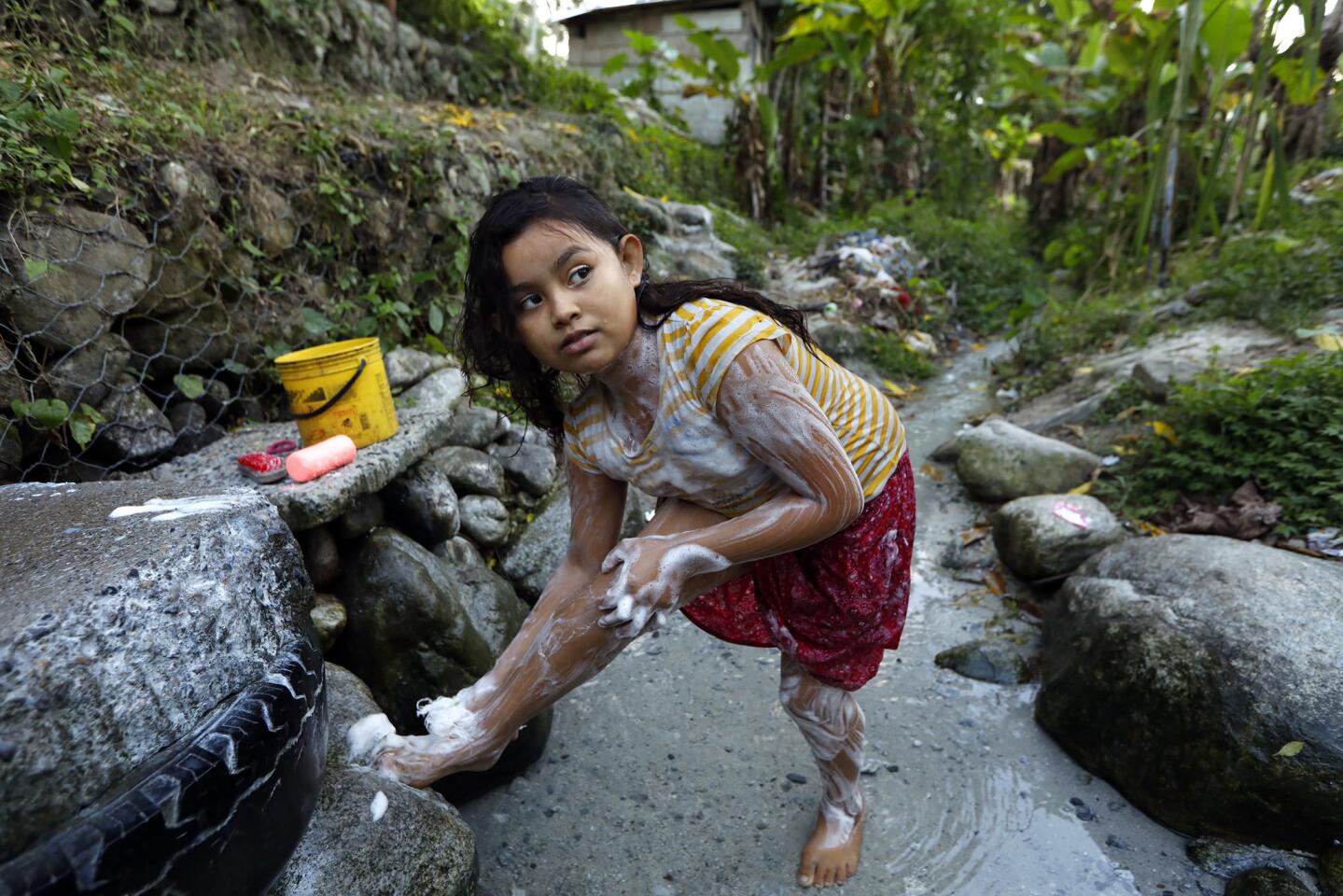
Yulisa Anavela Ordonez Martinez bathes in a spring. She is 10 but only in the first grade. Her mother died and her father hadn’t allowed her to start school. Many Hondurans want to leave their country due to high unemployment and lack of opportunity. The economy has continued to get worse under the current administration. The murder rate has been cut in half.
(Carolyn Cole / Los Angeles Times)The reasons for “the exodus,” as many in Honduras have begun referring to the recent mass migration, go far beyond violence. The economy is in shambles, with nearly two-thirds of the labor force either unemployed or underemployed. Endemic corruption and relentless political instability have also been major factors.
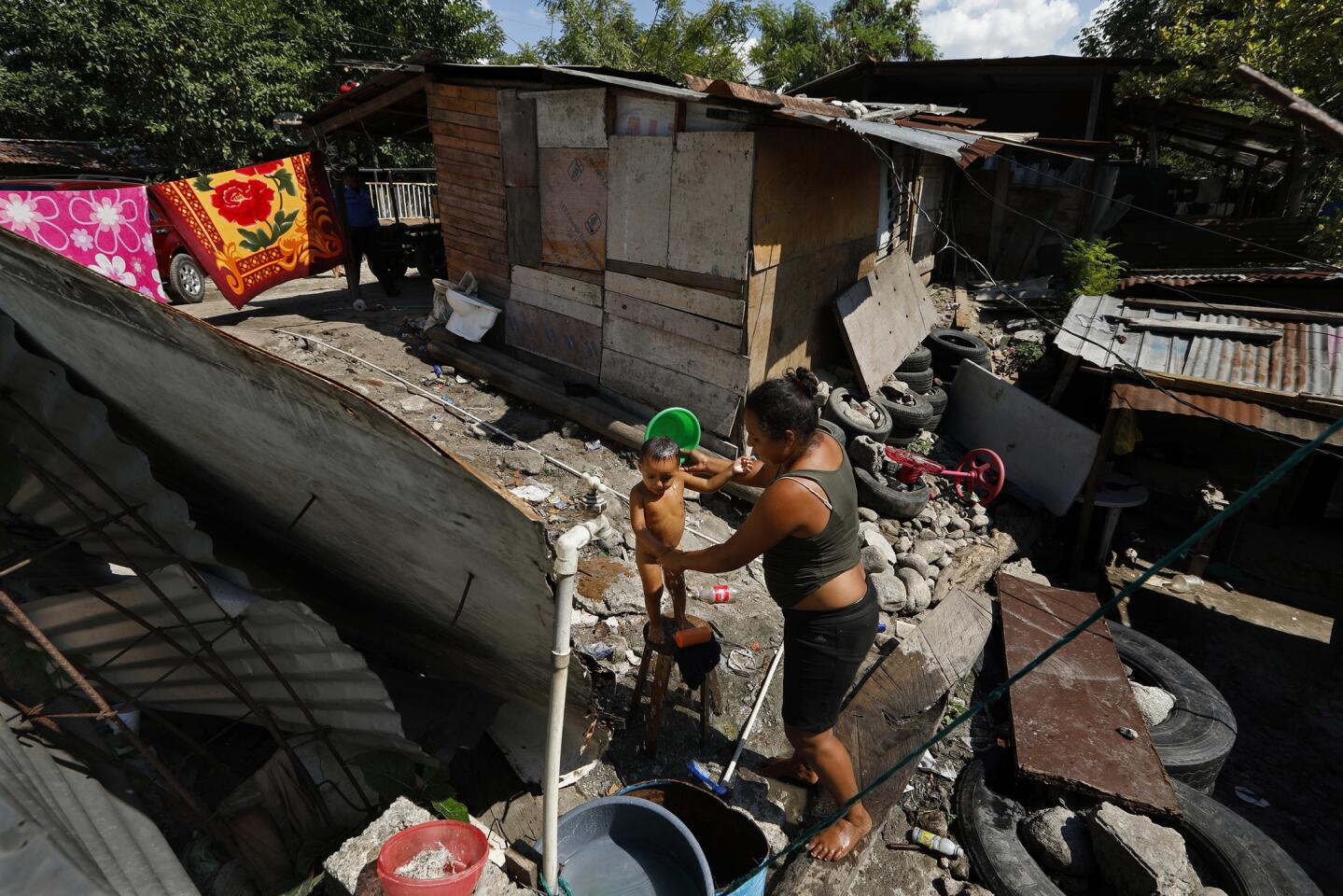
Kensi Paula Enriquez, 22, bathes her daughter Sarahi Enriquez, 2, with the faucet they use as a shower in the neighborhood of Bordo del Rio Blanco. Her brother left in the caravan headed for the United States, and she hasn’t heard from him since.
(Carolyn Cole / Los Angeles Times)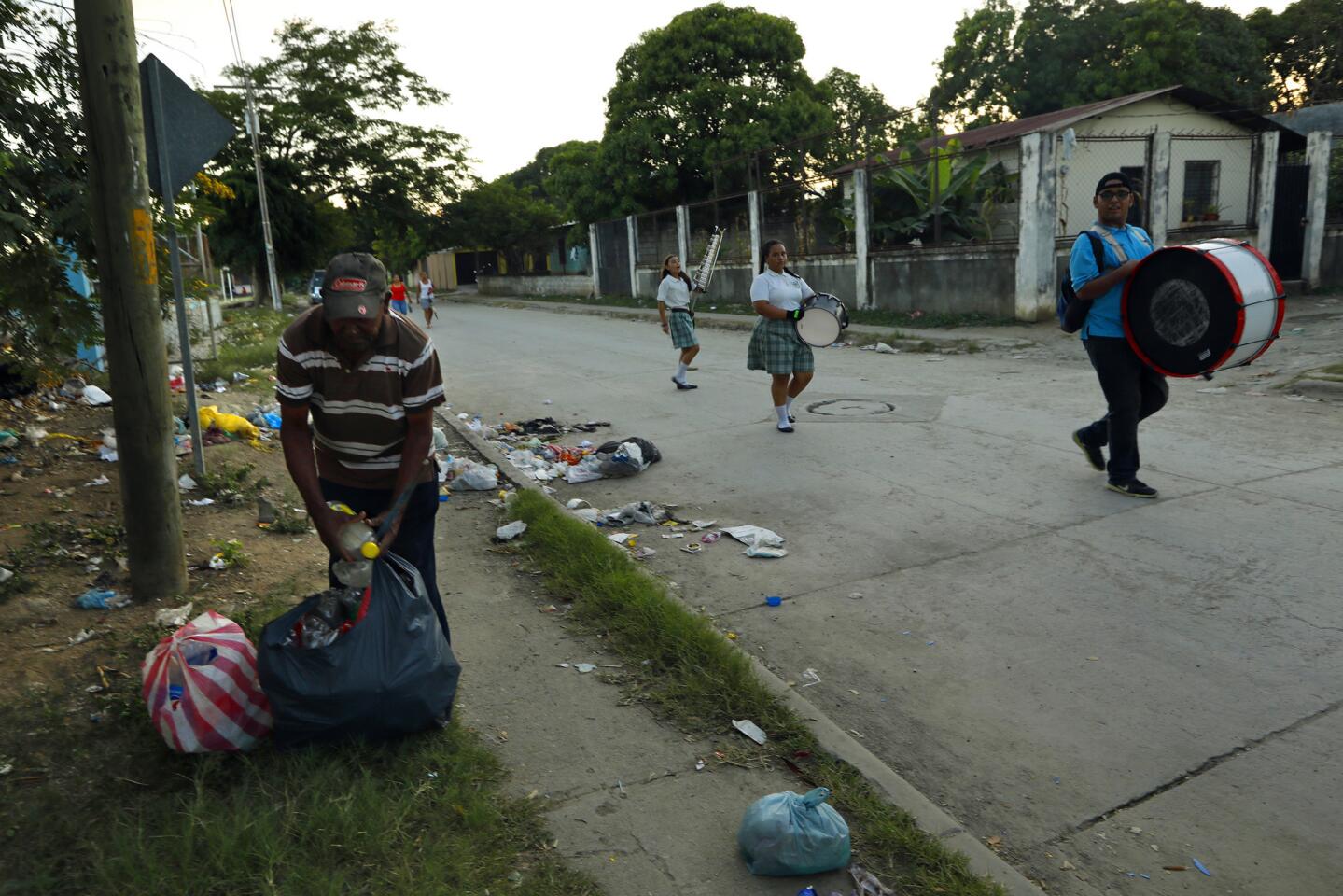
On the outskirts of San Pedro Sula, schoolchildren practice their band songs near a park which used to be too dangerous to hang out in due to gang violence.
(Carolyn Cole / Los Angeles Times)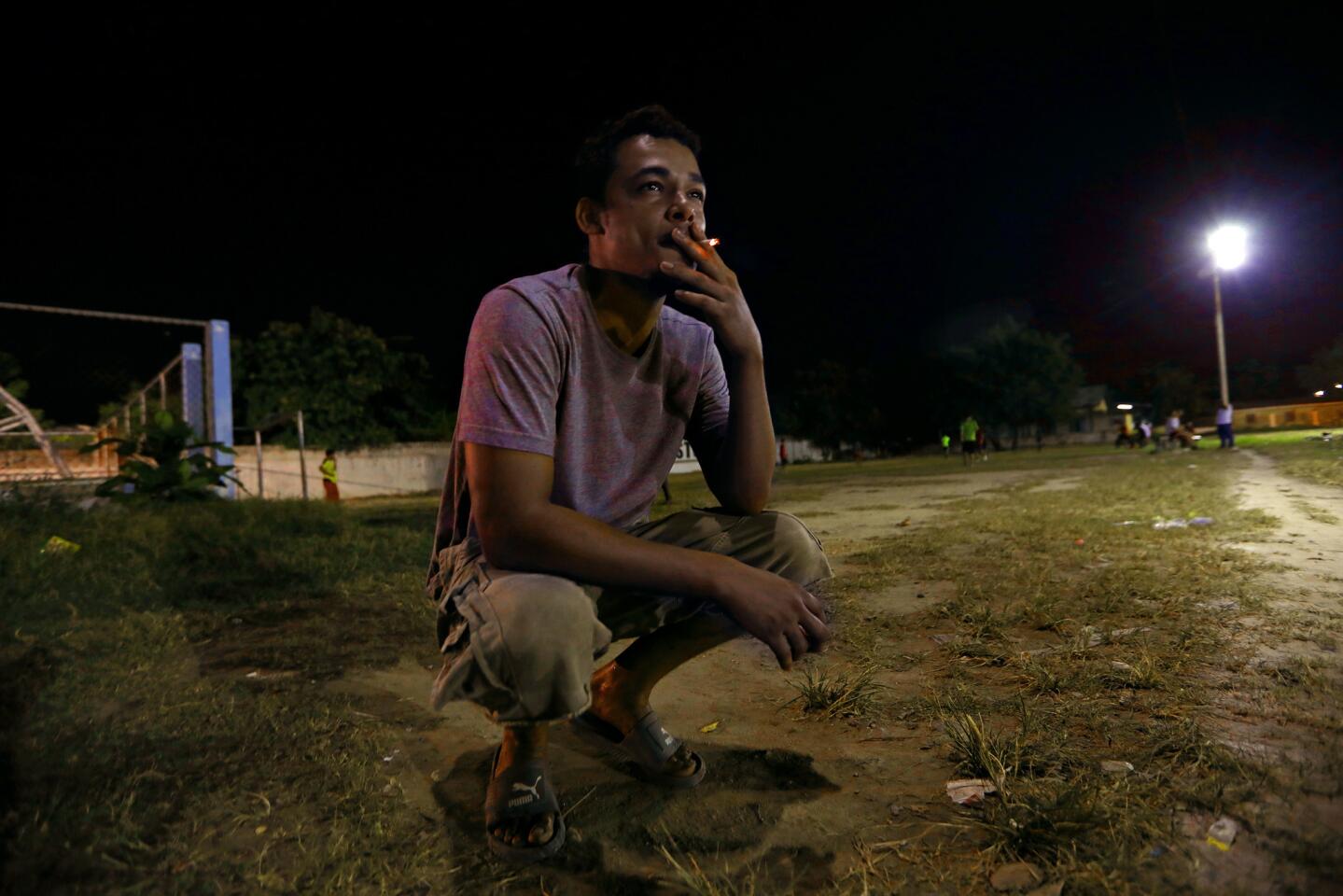
On the outskirts of San Pedro Sula, in a park near Rivera Hernandez, Edward Woodcock, 28, smokes in the park that was once too dangerous to hang out in. He is lucky to have a job in a call center because he speaks English.
(Carolyn Cole / Los Angeles Times)Advertisement
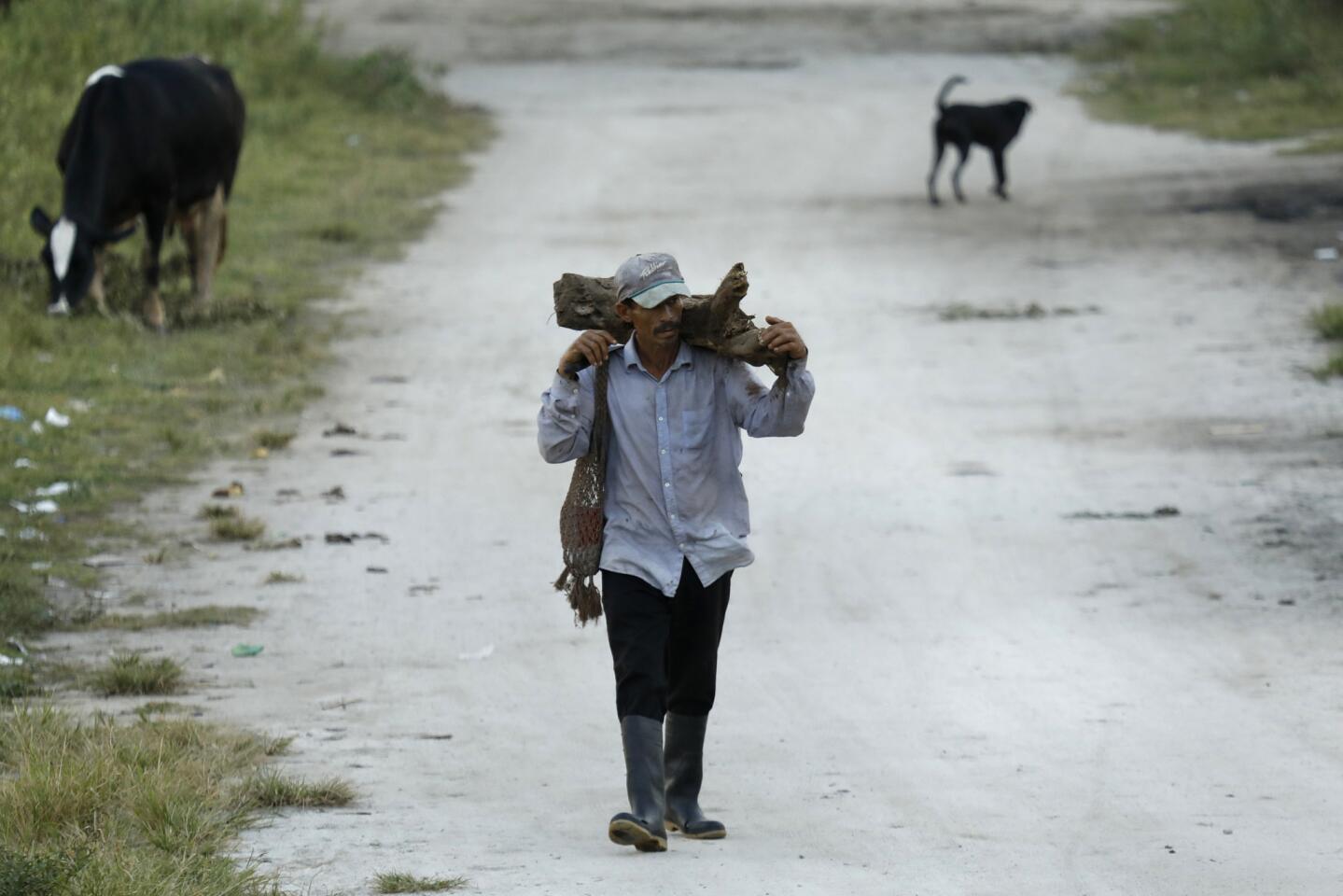
A man carries wood that will be used for cooking in the neighborhood of Bordo del Rio Blanco, where at least seven people left in the caravan headed for the United States.
(Carolyn Cole / Los Angeles Times)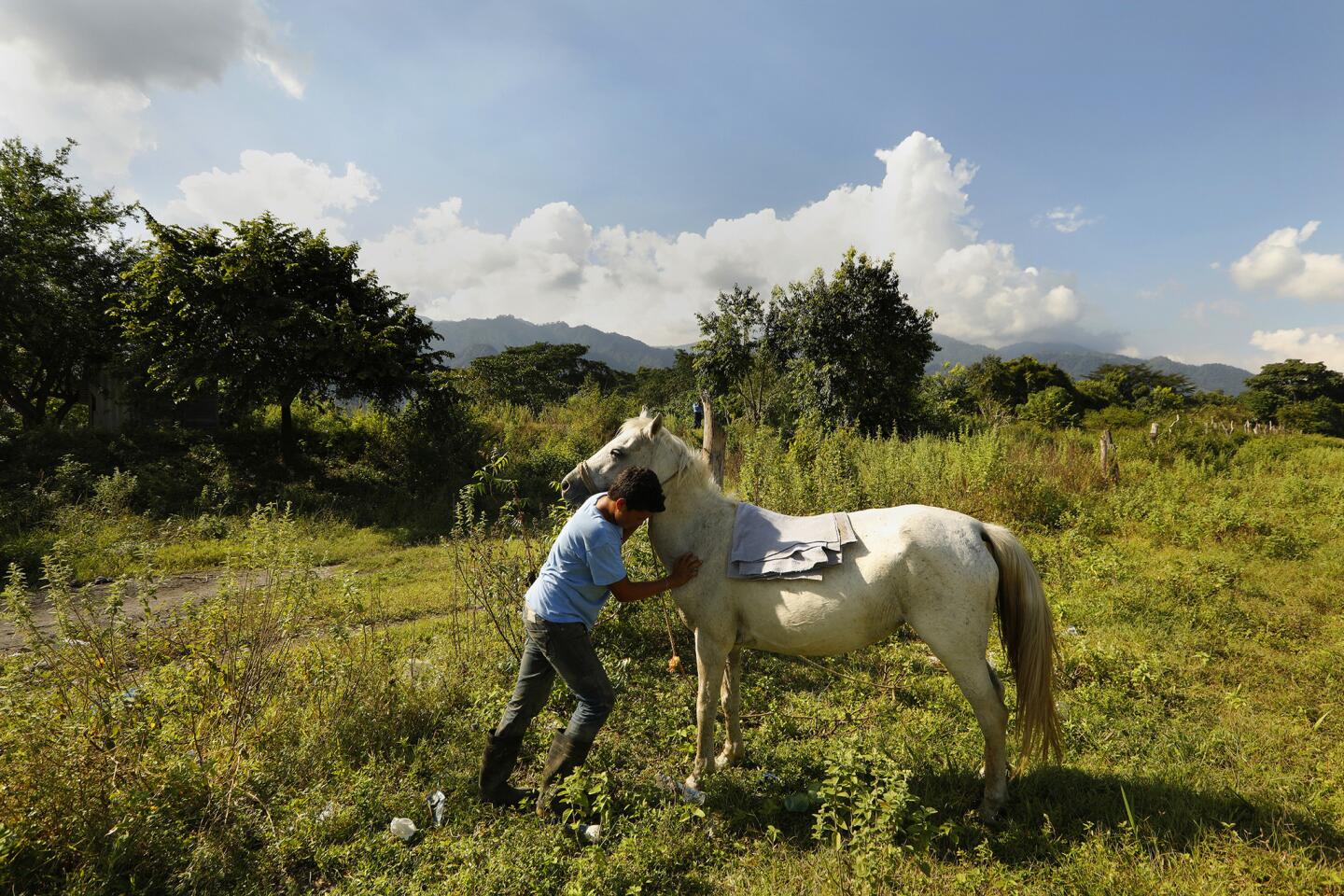
Javier Ordonez, 15, has the burden of supporting his family since his older brother left for the United States in July. His mother, Reina Margarita Ordono, 49, has raised 10 children on the outskirts San Pedro Sula.
(Carolyn Cole / Los Angeles Times)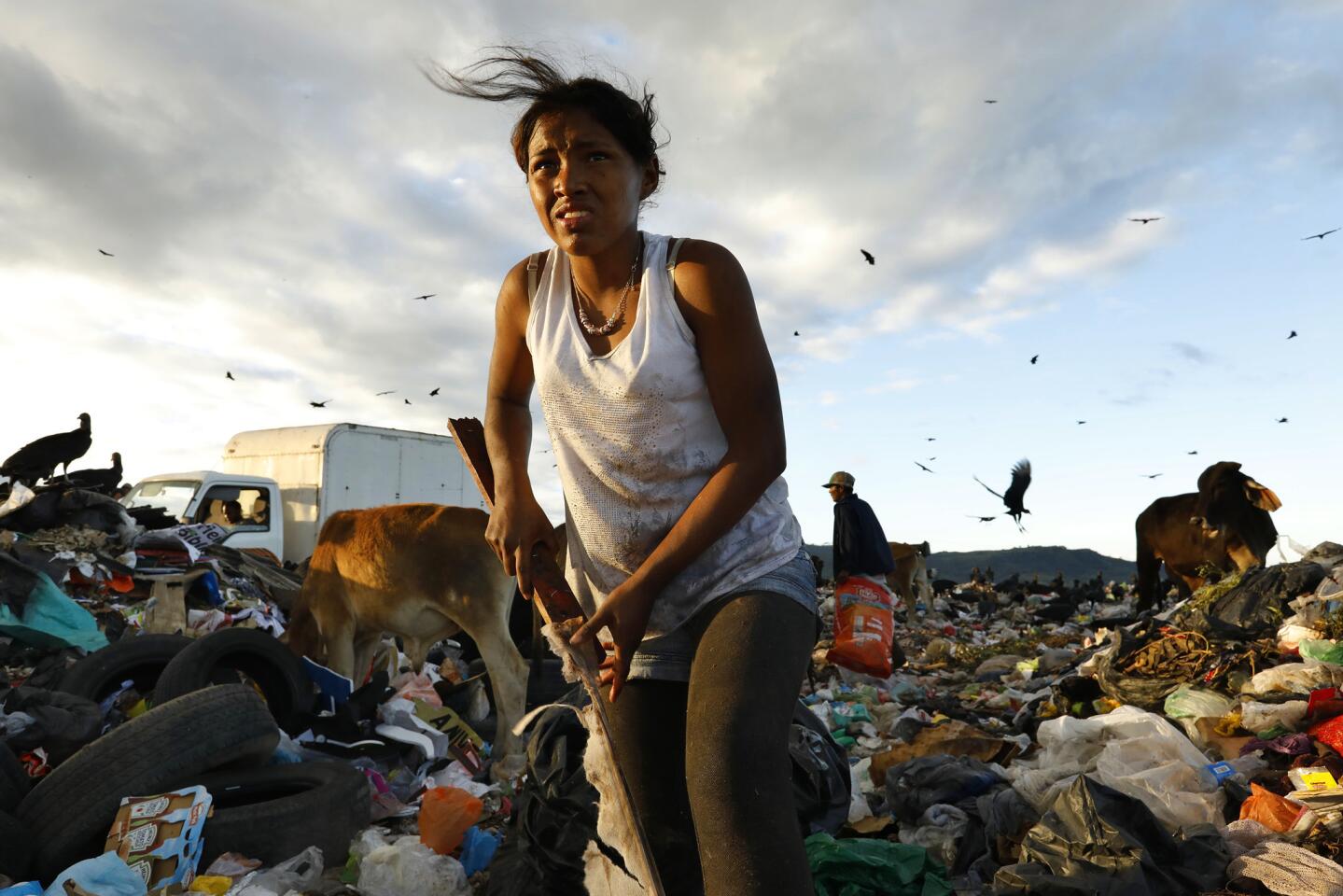
Many people make a living going through the garbage at the municipal dump on the outskirts of Tegucigalpa. Among Hondurans deported from the U.S., 96% cited economic hardship as a main reason for migrating, according to a Pew Research Center analysis of 2016 survey data.
(Carolyn Cole / Los Angeles Times)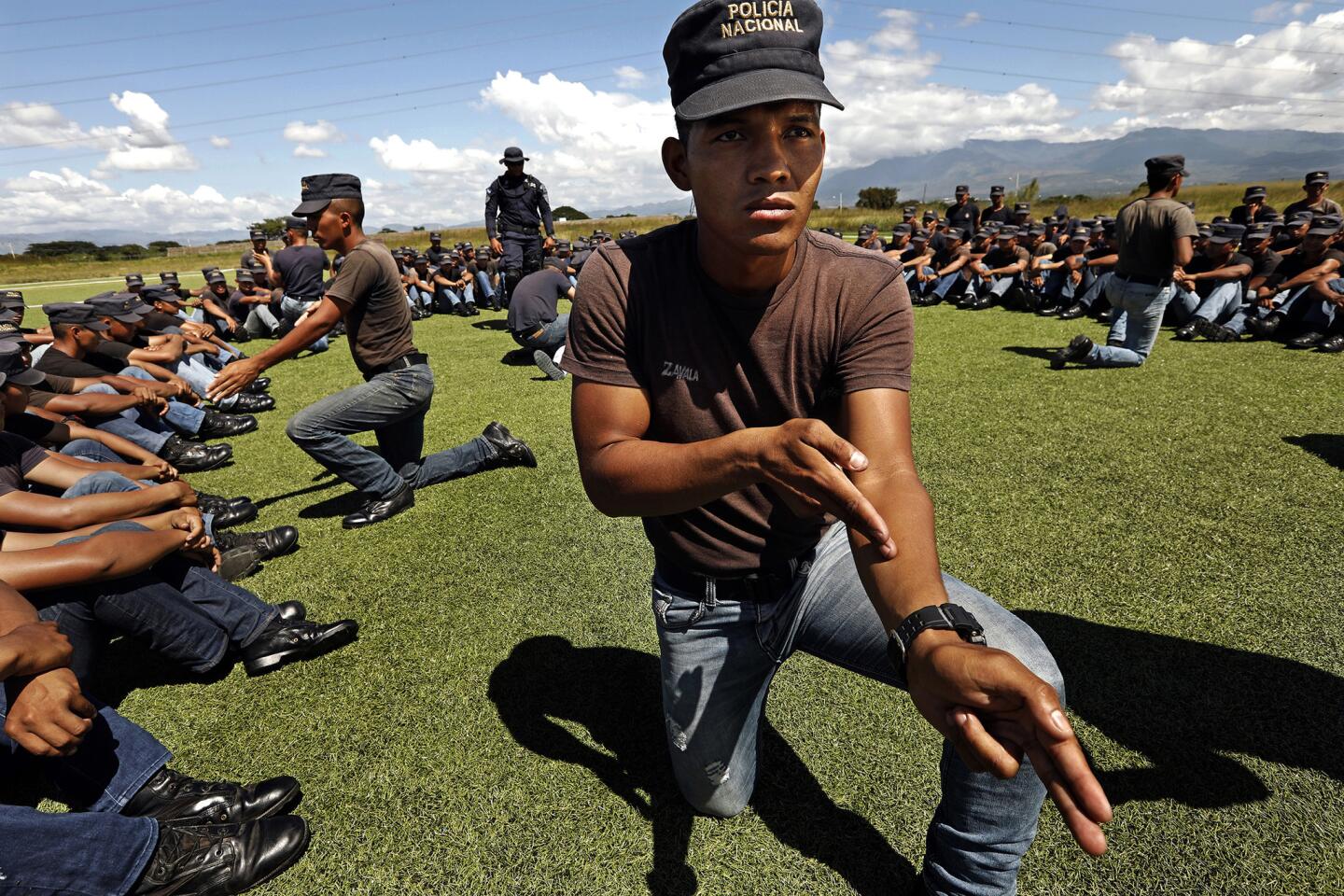
Young recruits go through an 11-month program to join the Honduran police force. The Honduras federal police academy is located in a large valley on a highway that connects San Pedro Sula with the capital of Tegucigalpa. The United States has invested tens of millions of dollars in making Honduras a safer place. In the last two years alone, the U.S. has spent $146 million on violence prevention programs and investments in Honduras’ security forces and judicial sector, according to the think tank Washington Office on Latin America, which tracks aid spending.
(Carolyn Cole / Los Angeles Times)Advertisement
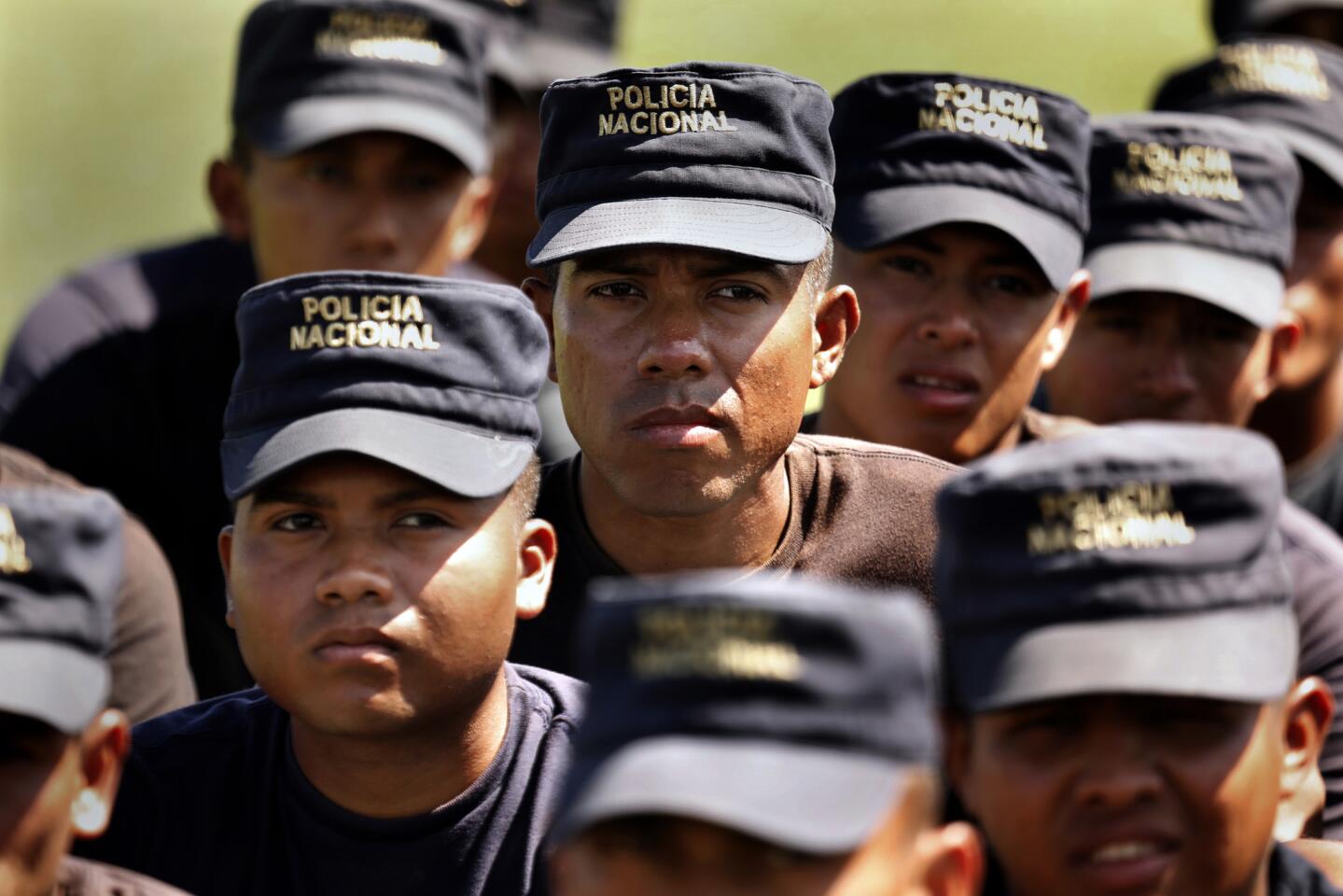
Young recruits listen to instructions during training for the Honduran police force.
(Carolyn Cole / Los Angeles Times)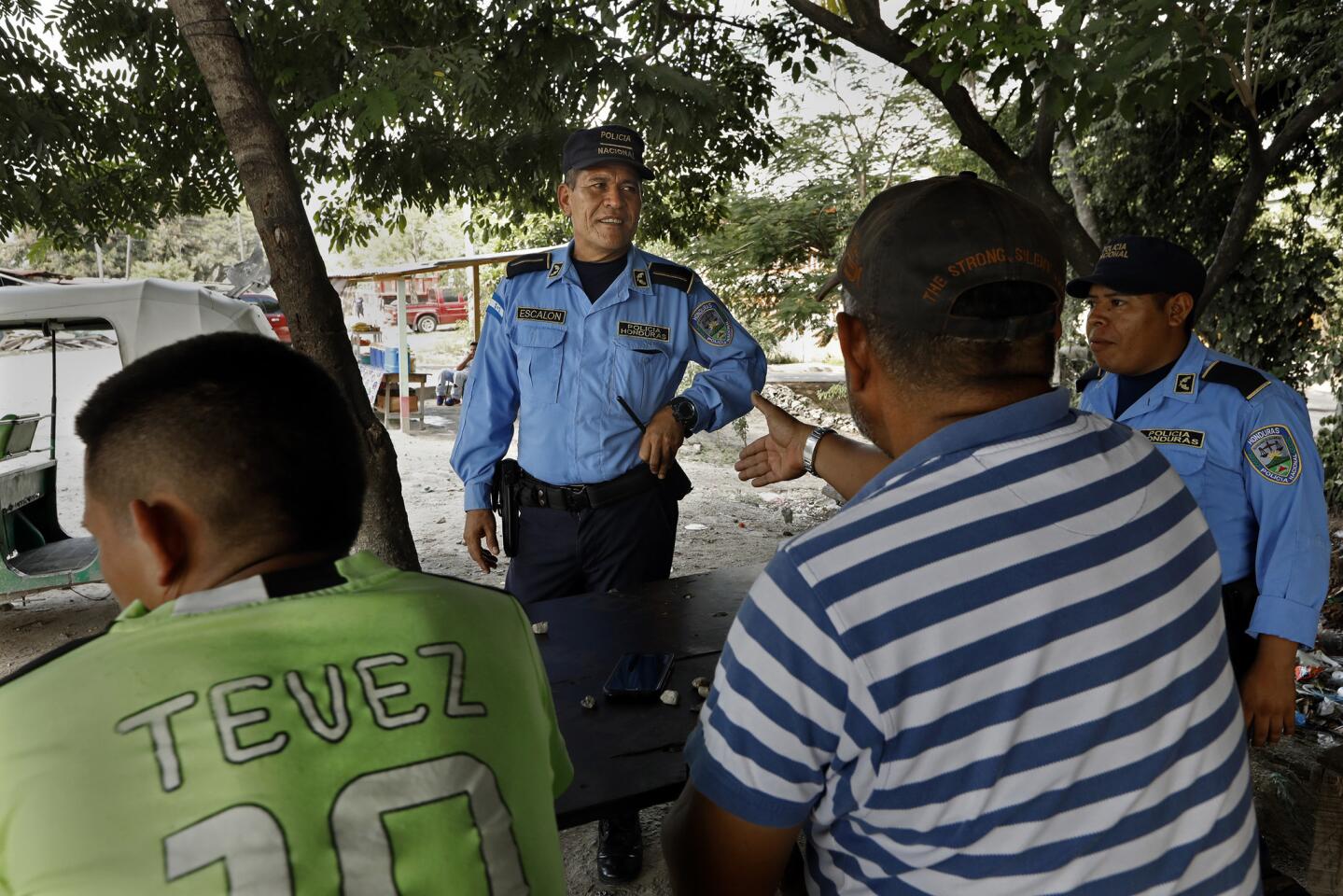
Police Officer Domingo Escalón, 50, center, was trained in community policing around the world, including via programs provided by the U.S. Embassy, and knows members of the Bordo del Rio Blanco community by name.
(Carolyn Cole / Los Angeles Times)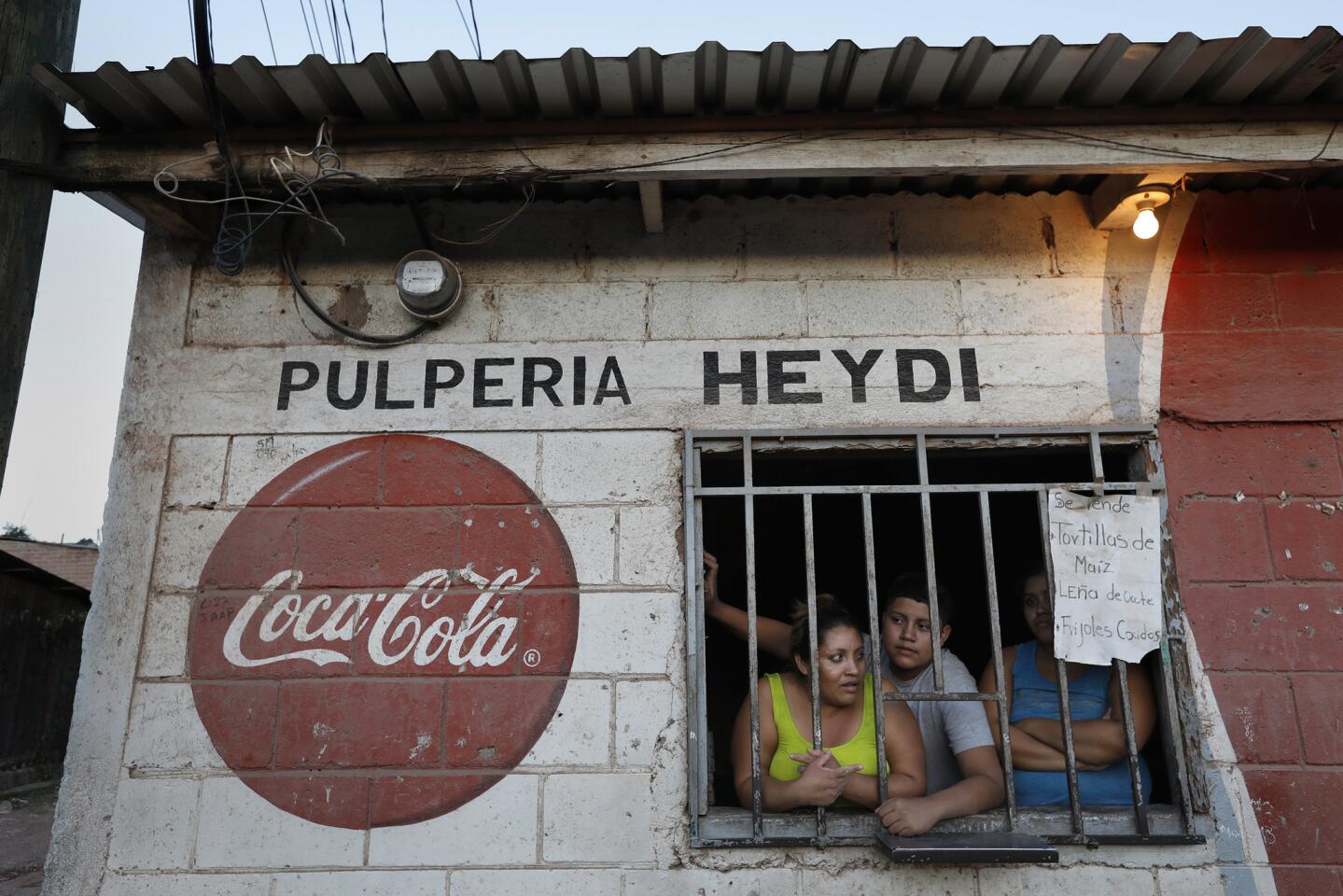
Maria Edith Mejia, 35, sells tortillas from her home store in a neighborhood of Tegucigalpa. In the eight years she has been selling, the lack of jobs has forced more of her neighbors to open tortilla shops, increasing competition. They have bars on their house for security.
(Carolyn Cole / Los Angeles Times)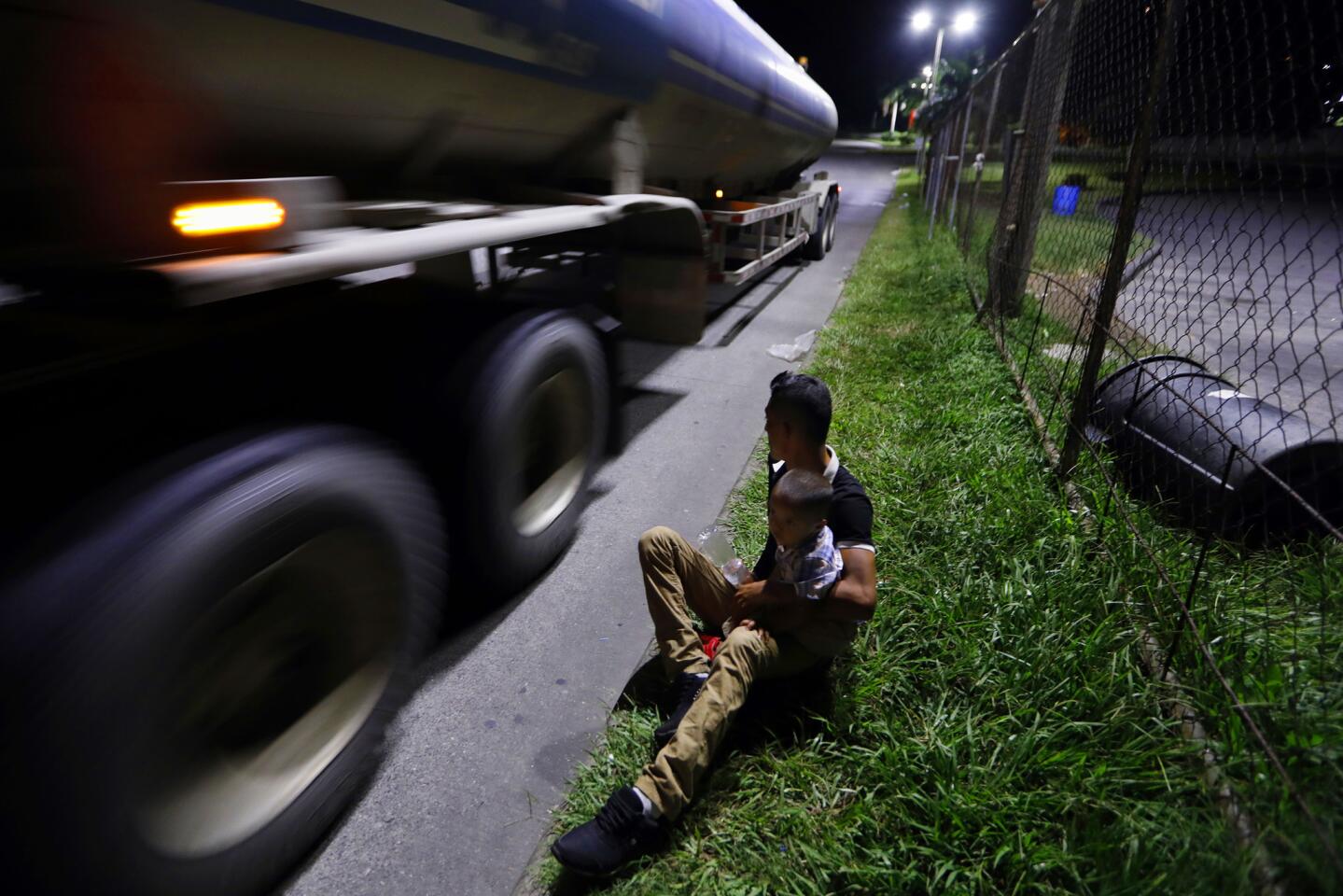
Elminton Hernandez, 26, holds his son Axel, 2, at the bus terminal in San Pedro Sula, where they will leave for the United States on a 2 a.m. bus.
(Carolyn Cole / Los Angeles Times)Advertisement
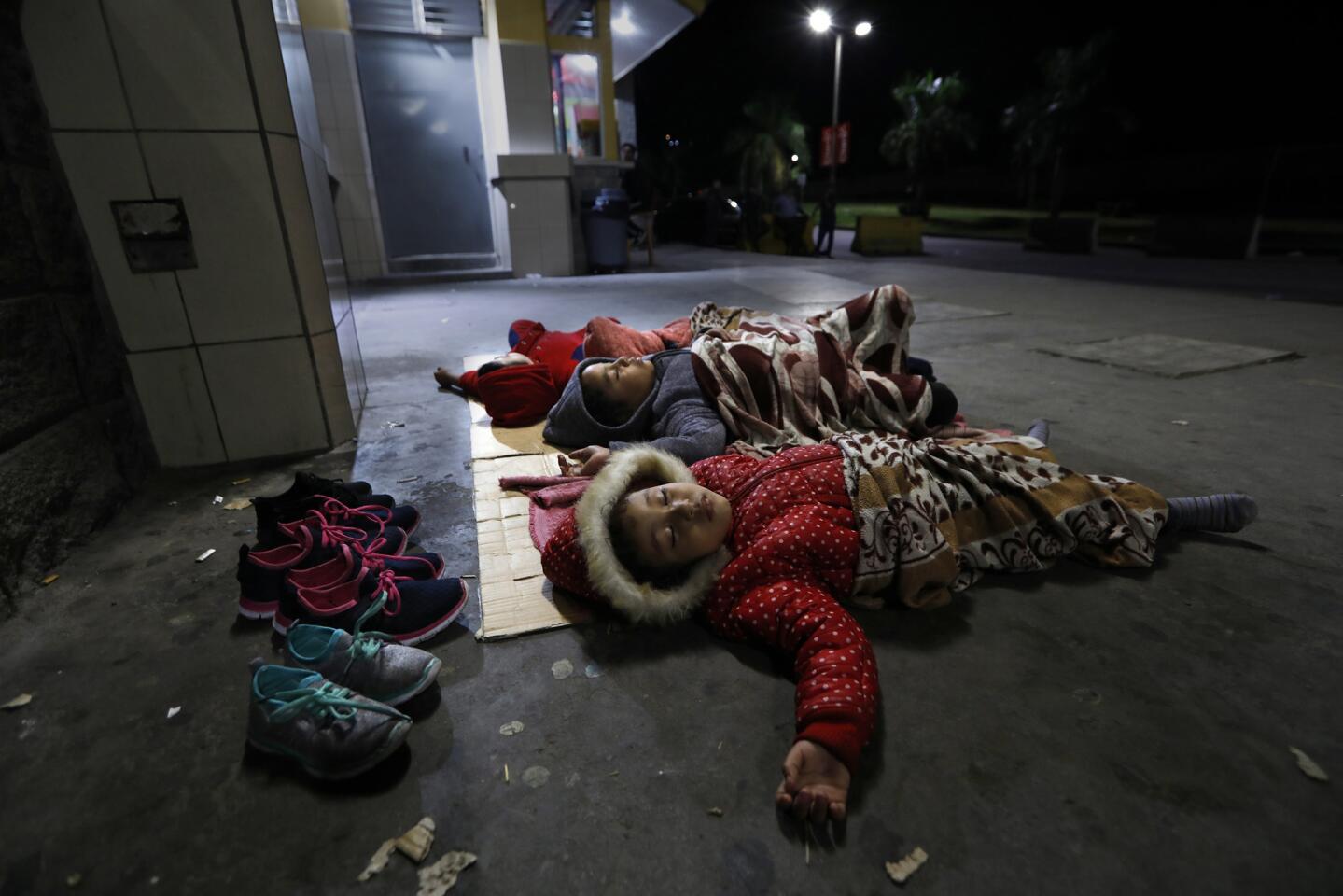
The children of Yong Yobay Rodriguez, 36, sleep as they wait for a bus in San Pedro Sula to begin their journey to the United States with their father. Their mother had gone to the U.S. three months earlier with their youngest sibling, a baby, and was living in Baltimore.
(Carolyn Cole / Los Angeles Times)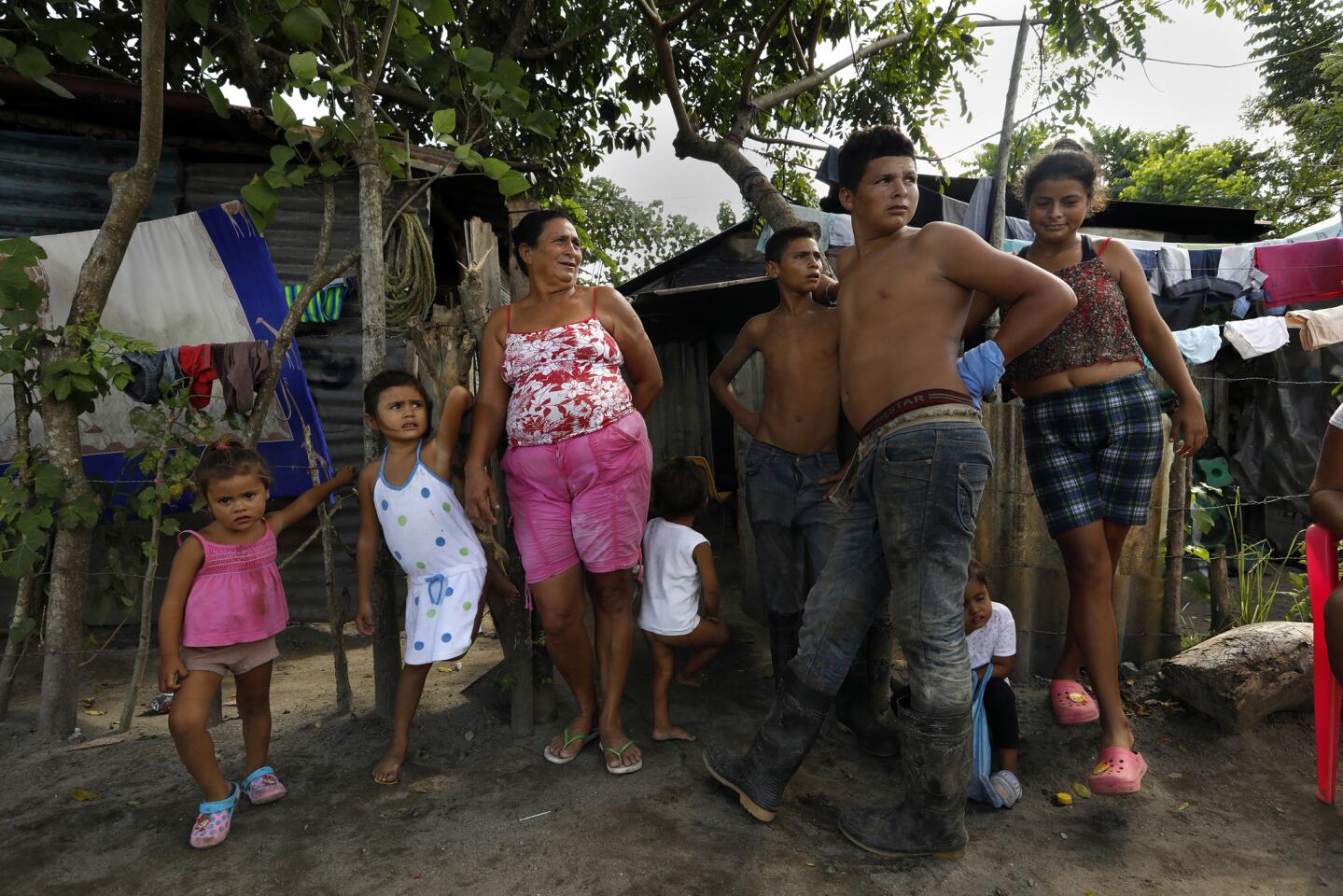
In the neighborhood of Bordo del Rio Blanco, Reina Margarita Ordono, 49, center, has raised 10 children on the outskirts San Pedro Sula.
(Carolyn Cole / Los Angeles Times)





